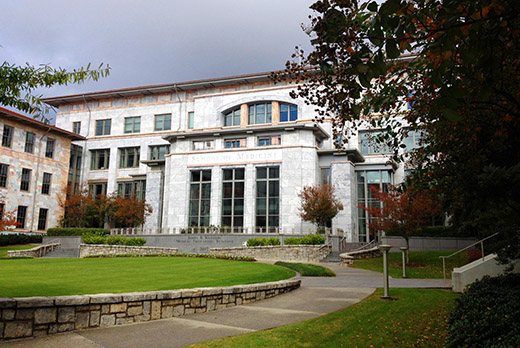Emory University's School of Medicine was awarded more federal funding than ever before from the National Institutes of Health (NIH), allowing researchers to pursue cutting-edge discoveries to cure and treat diseases.
The Blue Ridge Institute for Medical Research once again ranked Emory high among the nation's institutions for NIH funding, placing its medical school 19th. The Institute scores schools and departments across the United States on the basis of NIH funding.
Emory's School of Medicine attracted $290.7 million in NIH funding in 2019, up $31.3 million from the prior year.
"That fact that NIH continues to invest so heavily in research at Emory is a testament to the dedication and innovative thinking of our faculty," says Vikas Sukhatme, MD, ScD, dean of the School of Medicine. "The federal dollars that flow to efforts here allow us to advance scientific breakthroughs that improve the lives of our patients."
The Department of Pediatrics was the School of Medicine's top-ranked program, coming in at No. 3 in the nation.
Five other Emory School of Medicine departments ranked in the top 10 for NIH funding:
- Biomedical Engineering: 4
- Neurology: 7
- Pathology and Laboratory Medicine: 9
- Rehabilitation and Physical Medicine: 9
- Surgery: 6
The NIH is the largest source of funding for medical research in the world. In fiscal year 2019, the federal government was Emory's largest research sponsor and the NIH accounted for close to 85 percent of funds from the sector.
About Emory University School of Medicine
Emory University School of Medicine is a leading institution with the highest standards in education, biomedical research and patient care, with a commitment to recruiting and developing a diverse group of students and innovative leaders. Emory School of Medicine has more than 3,100 full- and part-time faculty, 582 medical students, 522 allied health students, 1,322 residents and fellows in 107 accredited programs, and 92 MD/PhD students in one of 48 NIH-sponsored Medical Scientist Training Programs. Medical school faculty received $443.8 million in external research funding in fiscal year 2019. The school is best known for its research and treatment in infectious disease, neurosciences, heart disease, cancer, transplantation, orthopaedics, pediatrics, renal disease, ophthalmology and geriatrics.

